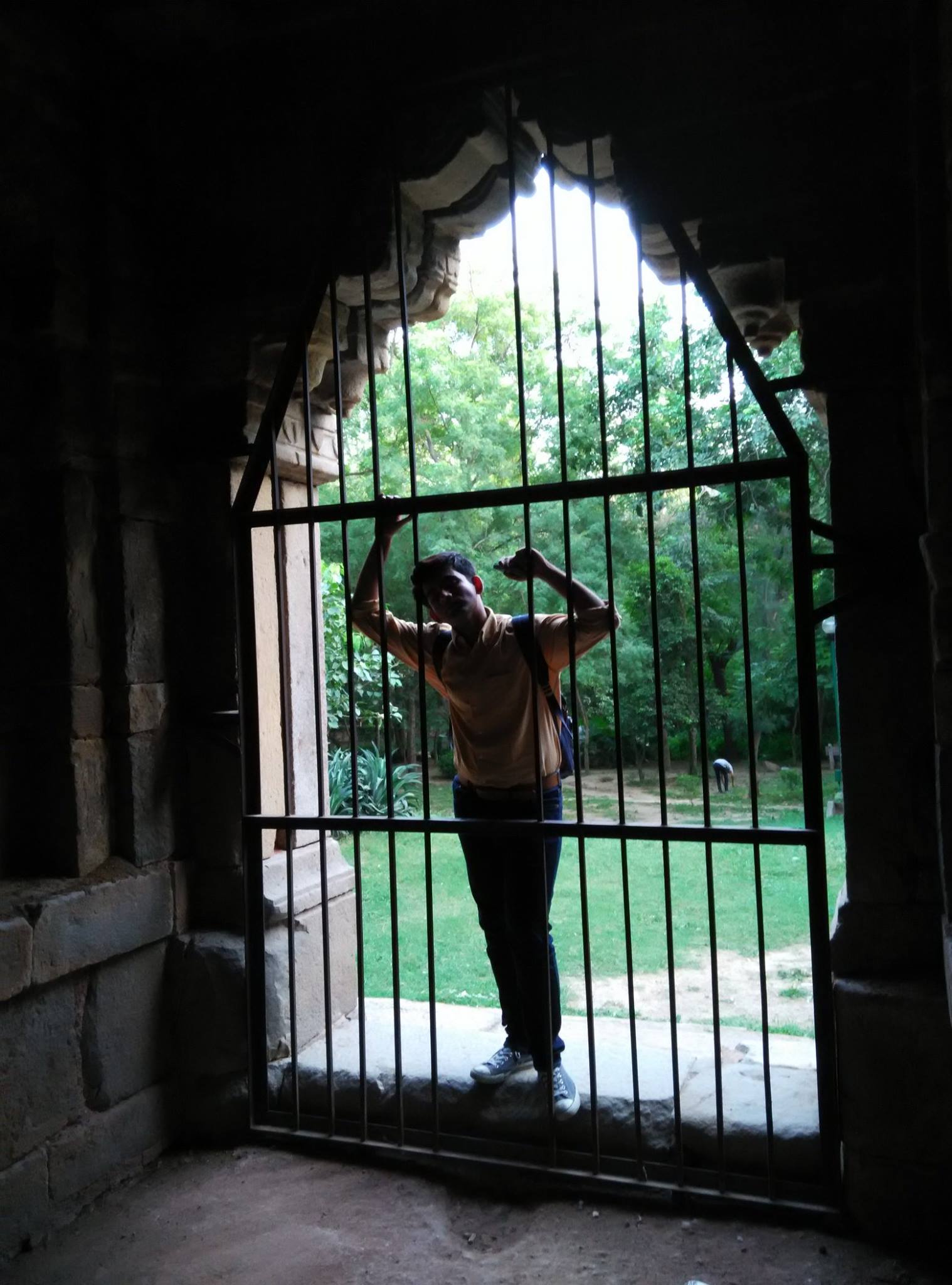Section 377, Indian Penal Code, 1860 (hereinafter ‘IPC’) criminalises all penile-non vaginal sexual acts between consenting adults with severe punishment, with maximum imprisonment up to life. Most gay and bisexual men live in constant fear and are very vulnerable to blackmail and extortion, but hardly report such cases due to fear of criminal law and involuntary disclosure of sexual orientation. The case discussed below is part of the growing incidents of harassment, blackmail and violence, following the Supreme Court’s decision upholding Section 377, IPC inSuresh Kumar Koushal v. Naz Foundation[1]in December 2013, and how lawyers and activists are trying to use existing criminal law to mitigate the harm.
On 9thOctober 2015, a Magistrate Court at Ballard Pier, Mumbai framed charges against three people in a trial for offences under Section 389 (Putting Person in Fear of Accusation of Offence under S. 377, in order to commit Extortion)in addition to Section 392 (Punishment for Robbery)of the IPC.
Brief Facts of the Case
Aditya Mehra befriended Saleem Mohammad, both adults, on a social networking site and met him at his hotel in Mumbai in March 2014. Half an hour later, two strangers barged into Mehra’s room claiming to be Saleem’s brother and friend and accused Mehra of attempting to have sex with Saleem, and threatened to inform his parents that he had ‘homo sex’. Besides physically assaulting him, they took away Mehra’s possessions, including laptop, cash of Rs. 20,000/-, mobile phone, camera and gold chain.
Overwhelmed with shock, Mehra did not think of reporting the offence or approaching a lawyer. The fear of being ‘outed’ and the possibility of being prosecuted under Section 377, prevented Mehra from talking about the incident. He then read a news report about a similar incident of extortion involving the same three persons. The fact that many other people were suffering emboldened Mehra’s resolve and he approached the Humsafar Trust. Subsequently, he met lawyers at the Lawyers Collective (‘LC’) who advised him to report the offence primarily under Section 389, IPC. Section 389 penalizes anyone for putting a person in fear of an accusation of offence under Section 377, in order to commit extortion.[2] Consequently, Mehra reported the incident to the nearest police station on 10thApril 2014, and after recording his statement, the police registered the F.I.R. on 11thApril 2014. Though Mehra’s statement primarily brought out an offence under Section 389, the police refused to record it under Section 389 and but only invoked Section 392 that provides punishment for robbery.
Extortion and Section 389, IPC
Presently, Mehra is being represented by a legal team from LC in the Magistrate Court, who are assisting the Public Prosecutor with Court’s permission,[3] in order to evolve a remedy in law, for harassment, blackmail and violence faced by gay or bisexual men, in light of existence of Section 377.
Section 389 is a cognizable offence (i.e., arrest without warrant), bailable and non-compoundable. Though Section 389 has been part of the IPC since 1860, there are no reported judgments of any High Court and/or the Supreme Court of India under the provision. From a bare reading, the ingredients of Section 389 include:
- That the Accused (extortionist) put, or attempted to put, a person (victim or complainant) in fear;
- That the fear was of an accusation of committing an offence, or attempt to commit an offence under Section 377 (penile non-vaginal sex);
- That the Accused did so in order to commit extortion.
In LC’s experience, the Police do not invoke Section 389 in F.I.R.s registered by gay and bisexual men, but only record offences of robbery or other forms of extortion under Sections 385-387, IPC. In contrast, Public Prosecutors have been quite cooperative and are keen to use Section 389, while arguing for charges to be framed before the Magistrate. This highlights the differential attitudes of the State authorities, wherein the police betray an unfamiliarity and/or misunderstanding of the law under Section 389, while the Prosecutors are more open to new arguments.
In Mehra’s case, LC’s lawyers sought to frame charge under Section 389 through the Public Prosecutor in December 2014 before the trial started in the Magistrate’s Court, which was argued in September, 2015. In October, 2015, the Magistrate agreed to frame charges under Sections 389 and 392 against offenders, finding the complained actions to “categorically come within the ambit of the offence punishable u/s. 389, IPC, 1860”,[4]which became final in November, 2015.

Photo: Aditya Bondyopadhyay /QGraphy
Impact of Section 389, IPC on harassment and blackmail of gay and bisexual men:
The question whether Section 389 is a queer-friendly provision is still open, owing to lack of an authoritative decision from the High Court or the Supreme Court of India. Importantly, the possibility of gay men being subject to blackmail and harassment, due to their sexuality, has been noted way back in 1957 in TheWolfenden CommitteeReport, 1957 (UK). In advocating de-criminalization of penile non-vaginal sex between consenting adults, the Wolfenden Committee particularly observed:
“We know that blackmail takes place in connection with homosexual acts. Most victims of the blackmailer are naturally hesitant about reporting their misfortunes to the police, so that figures relating to prosecutions do not afford a reliable measure of the amount of blackmail that actually goes on…We have found it hard to decide whether the blackmailer’s primary weapon is the threat of disclosure to the police, with attendant legal consequences, or the threat of disclosure to victim’s relatives, employer of friends, with attendant social consequences…. At the least…the present law does afford to the blackmailer opportunities which the law might well be expected to diminish”.[5]
Ironically, it is Section 377 which is the source of blackmail and harassment of gay men. It is also the biggest impediment to reporting of such crimes, including under Section 389. It is hoped that if more people come forward to report offences under Section 389 and are willing to go through the trial process, there is a likelihood of getting an authoritative decision on Section 389 from a higher court, which may go a long way in clarifying when and how can Section 389 be used to protect gay and bisexual men against blackmail and extortion. At the same time, Section 389 can only serve as a temporary and partial remedy. As noted in the Wolfenden Report, it is the de-criminalization of sex between consenting adults under Section 377, which will reduce instances of blackmail as well as enable those who may be blackmailed to make a complaint to the police.
Other challenges in establishing S. 389, IPC as a queer-friendly law
- There exist other Section 377-related challenges in establishing S. 389 as a ‘queer-friendly’. The precedents under Section 389, till date (economic offences of forgery, cheating, fraud) suggest that focus of law is investigation and punishment of the offence ofputting a person in fear of accusation of offense,regardless of truthfulness of the accusation. However, LC’s lawyers have encountered many situations wherein police demand a medical examination (anal) of the complainant before registering an F.I.R., for purposes of ‘prior investigation’ of the truthfulness of the accusation of having/attempting to have penile non-vaginal sex, thereby posing a risk of self-incrimination. There is still no clarity whether the practice of performing a ‘medical examination’ on the complainant is legally valid or not.
- A plain reading of Section 389 suggests that disclosure of sexual orientation by the complainant is not mandatory for registration of offence, since Section 377 only prohibits penile-non vaginal sexual acts, but does not make being gay a crime. Further, if gay and bisexual persons report and prosecute offenders as openly gay or bisexual complainants (with consent), then it would bring instant attention to the endemic problem of extortion and blackmail on grounds of sexual orientation in court and media, thereby bringing to the fore the pressing need for decriminalization. In this case, Mehra is prosecuting Saleem and the two men as an openly bisexual person, and has shown immense courage in taking the extortionists to Court.
- However, complainants who are being blackmailed by their erstwhile sexual partners, face difficulties in reporting such offences without risking involuntary disclosure of their sexual orientation and self-incrimination at worst. The existence of Section 377 is thus a cruel irony, in so far, as it fundamentally obstructs access to justice for gay or bisexual victims against constant blackmail and harassment.
Mehra’s matter is now committed to trial, beginning in January 2016. Independent of the outcome of this case, it is hoped that it will pave the way for more reporting of such cases, adoption of complainant-friendly procedures by the police and a significant change in the mindset of the judiciary about the real effect of criminalization under Section 377.
(Disclaimer: Pseudonyms have been for persons who’re party to the case)
[1] [(2014) 1 SCC 1]
[2]S. 389, IPC:Putting person in fear of an accusation of offence, in order to commit extortion –Whoever, in order to the committing of extortion, puts or attempts to put any person in fear of an accusation, against that person or any other, of having committed, or attempted to commit an offence punishable with death or with imprisonment for life, or with imprisonment for a term which may extend to ten years, shall be punished with imprisonment of either description for a term which may extend to ten years, and shall also be liable to fine; and, if the offence be punishable under Section 377 of this Code, may be punished with imprisonment for life.
[3] Section 301(2), Criminal Procedure Code, 1973
[4] Order dated 9thOctober 2015 of Mumbai Magistrate Court on file with the writer.
[5] Page 39, ‘Blackmail’, Report of the Committee on Homosexual Offences and Prostitution, 1957
- Using Criminal Law to Mitigate the Effects of Section 377 - February 23, 2016

